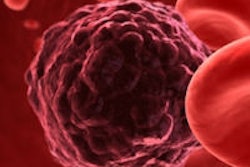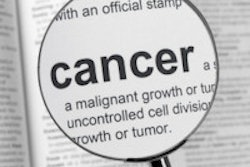Researchers at the Perelman School of Medicine at the University of Pennsylvania (Penn) will receive $7.3 million over the next five years from the National Cancer Institute (NCI) to explore new ways to treat esophageal cancer.
This grant is a renewal of a National Institutes of Health/NCI program funded over the last 10 years and is the only program of its kind funded by NCI for esophageal cancer, according to the university.
"We are excited about this renewal, and it builds upon success in generating novel three-dimensional organ-like culture models, mouse models, and identifying key genes with clinical outcomes," says Anil Rustgi, MD, the T. Grier Miller Professor of Medicine and Genetics and chief of the gastroenterology division, who is the overall principal investigator on the grant. "We have several candidate genes and pathways that serve as new and innovative targets for esophageal cancer, which we believe have implications in head and neck cancer as well as lung cancer."
Continued research for esophageal cancer is critical for prolonging patient survival. Patients with esophageal cancer often have a poor prognosis and reduced response to traditional chemoradiation therapy. Esophageal adenocarcinoma, one of two subtypes of the cancer, has the fastest rate of increase of any cancer in the U.S.
Three projects are the cornerstone of the grant:
Project One (Dr. Rustgi, project leader) will focus on the biological roles of the cooperation between p120-catenin and p53 tumor suppressor genes in the formation of esophageal tumor cells, as well as the interplay of these tumor cells with other proteins in the tumor microenvironment.
Project Two (J. Alan Diehl, PhD, project leader) elucidates the manner in which the protein cyclin D1 is regulated and defines the role of Fbx4 mutations in initiation of esophageal cancer. These findings will be developed into therapies that target cyclin D1/CDK4 kinase, and key downstream molecules.
Project Three (Kwok-Kin Wong, MD, PhD, and Adam Bass, MD, Dana-Farber Cancer Institute, project leaders) looks at genomic amplifications of genes encoding ERBB-family kinase proteins and cell-cycle mediators in esophageal cancers. These will serve as biomarkers to guide the use of targeted inhibitors and to test therapeutics in genomically defined models to identify optimal agents and rational combinations of targeted agents.



















